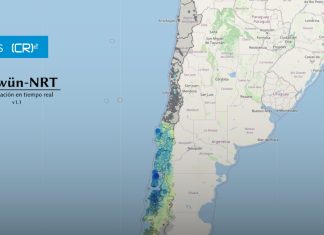CROSS-CUTTING THEME
Water security

This integrative theme rebuilt and projected the levels of water security in the country, quantifying its historical trajectory (1980-2020) and its projection (2020-2050) under scenarios of social development and climate change. In addition, it seeked to understand the climatic, ecological and social processes that influence water security.
To quantify the levels of water security, indicators that represent aspects such as access to water, ecosystem health, among others, were proposed. A requirement to raise these indicators is to know and model the hydro-social balance (water balance, including the anthropic uses of the resource) from a national to local scale. For this, we implemented a system that combines modeling tools, observations of different nature, database processing, and other resources.
The modeling system was implemented in what we call “National Focus”, where a realistic historical reconstruction of the country’s water balance was made, including both natural hydro-climatic processes and anthropic uses of water. For future projections of the hydro-social balance and water security, we prepared country development scenarios and coherent water uses. These use scenarios, together with regional climate projections based on global climate models, fed the national modeling tools that allowed the quantification of water security indicators in the coming decades.
To understand the processes that define the levels of water security, considering that these vary according to local realities and the aspects considered, we focus on some case studies that have the particularity of deepening into ecological and social processes, and their interaction with water security problems. Transversely to the national approach and the case studies, we have included a transformation approach to identify adaptation and transformation practices at the various levels of the integrative theme. This approach is key both to understand and interpret the research of the case studies and to propose the necessary transformations to advance water security, without compromising sustainable development.






